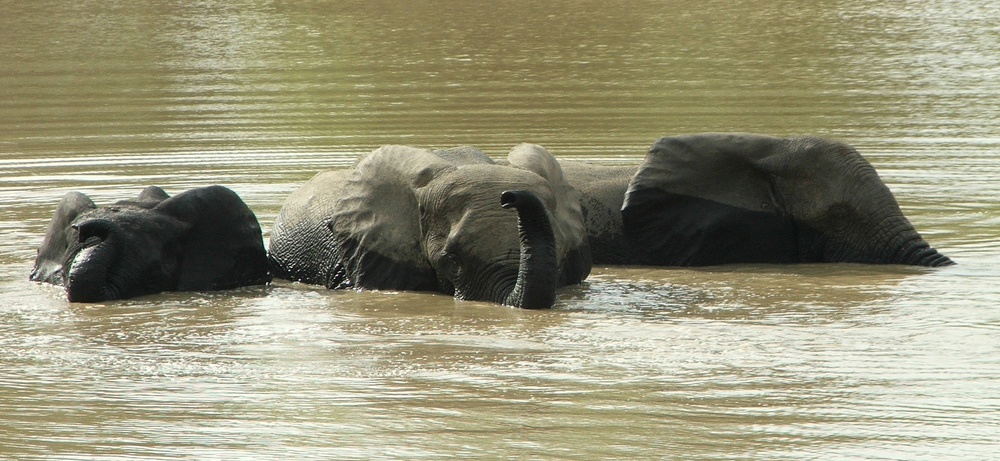
21 Amazing Facts About Elephant
21 Amazing Facts About Elephants You Probably Didn’t Know
- Elephants are the world’s largest land animal weighing between 4,000 -7,500kg and can reach about 3m tall. They are also known for their large ears, tusks made of ivory and their trunks which are actually a fusion of their nose and upper lip. Elephants have a gestation period of up to 22 months. A newborn human baby weighs an average of 7 pounds while a newborn elephant baby can weigh up to 260 pounds! The baby can stand up shortly after being born.
- Elephants do not sleep much. It will interest you to know that averagely Elephants spend almost their entire time feeding and only sleeps for 4 hours in a day. Believe me, they stand while sleeping most often and sometimes, they lay on one side and rest for a while.
- Elephants have sharp memories. Amazingly, these creatures do not forget whatever happens in their lives. That is to say that if you hurt an Elephant, it will remember and will retaliate whenever they see you. With a brain weighing over 5 Kg, you can imagine how intelligent they are. Their memories are essential during the dry season when matriarchs guide their herds over for long kilo meters in search of watering holes they have visited in the past.
- You should see how good these creatures swim. They are excellent swimmers and can swim for a long time through distances. Swimming is not just fun for them, it also helps them health-wise to rest their legs while in the water. Elephants are huge and their skin is easily sunburned. With their trunk, they will splash water onto themselves while swimming and after swimming, you will see them splashing mud or sand onto themselves to prevent these burns from the sun.
- There Are 3 Species of Elephants. We have the Asian Elephant, the African Bush Elephant, and the African Forest Elephant. Among these, the African Forest is the biggest. Now look closely at the ear of the African Elephant and you will see it has the shape of the African map.
- You ain’t the only one who becomes sensitive. Elephants are very sensitive when it comes to their feeding. They do not get closer to places where there are ants or bees because there are very dangerous for them when they go into their trunk.
- Elephants have been proven to pass the mirror test. They recognise themselves in mirrors. This is a study that was done some years back.
- Male elephants leave the matriarch groups between ages 12 and 15. But they aren’t solitary, they live in all-male groups. During the dry season, these males will form a linear hierarchy that helps them avoid injuries that could result from competing for water.
- Elephants can live up to 70 years. This being said, a few die early due to the feel of empathy for the death of a member. They possess a variety of complex emotions and feelings, including deep compassion and surprising self-awareness.
- When it comes to communication, Elephants are very good at it. They communicate through smell, touch, sight, and sound. elephants use infrasound and seismic communication over long distances.
- Elephants are herbivores. They require up to 300kg of food and 160 litres of water each day. They drink about 30-50 gallons of water every day. In addition to grasses, leaves, bamboo, bark, and roots of trees, they also are known to eat crops like banana and sugarcane.
- An elephant’s trunk is a very impressive multi-tool. Aside from being a long nose used for smelling, breathing and trumpeting, it is also used as a hand to grab things. This trunk is sensitive enough to pick up a blade of grass and strong enough to rip the branches off a tree. Elephants can suck up to 14 litres of water time into their trunks and then blow this water into their mouths to drink. They use the same when bathing, they spray themselves with water and mud. A study shows that the elephant trunk has about 40,000 muscles. Surprised?
- Whiles female Elephants live their lives in tight family groups made up of mothers, grandmothers, aunts, sisters, and daughters led by the oldest one, the males decide to live in bachelor groups
- Elephants become matured sexually when they are between the ages of 8 and 9 years. At this time, the males are able to find their own food and protect themselves and they turn to form their own herd during this period.
- A study shows that whiles the African Elephants are vulnerable and keep increasing in population, the Asian Elephants are endangered and they decrease in population. The threat to these Elephants are poaching and habitat loss.
- Male Elephants can grow up to 13 feet tall at the shoulders, measure up to 30 feet from trunk to tail, and weigh up to 14,000 pounds. With this, you understand why Elephants are the only mammal that can not jump.
- You wonder why some African Elephants do not have their tusk. They lose them! Either one or both tusk through fights, or by the processing of digging or through the luck of deficiency just like humans. Sometimes a part of it is broken!
- Elephants wander occasionally in order to find food, depending on their memories of the previous food and water supplies. They will also migrate to avoid poachers and other threats, even moving during the night to avoid traveling during the daytime, when poachers are most active. While they’re migrating in search of food, elephants spread seeds around the land where they have eaten, making them an important part of their ecosystems. After eating, seeds are released through elephant dung. A study has found that elephants are capable of transporting these seeds up to 40 miles!
- Another shocking revelation about Elephants is that their only predators are humans! Poachers still kill them for meat and ivory despite the ban on their ivory some 30 years ago.
- When an elephant is angry or feels threatened, it may respond by spreading its ears wide and facing whatever it may perceive as a threat. The additional 10-foot ear span tacked on to an elephant’s wide body makes an already imposing animal look even bigger than it may usually appear.
- What will you say the colour of an Elephant is? The real colour of an Elephant is greyish black but they appear as the same colour of the soil in the geographical area since they immediately sand or mud bath themselves after a swim.




